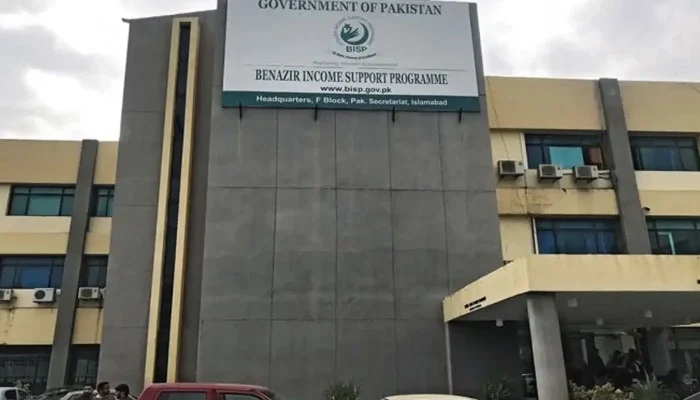Shocking Revelations Before Public Accounts Committee
A sub-committee of the Public Accounts Committee (PAC) was informed on Thursday that hundreds of government officers and bureaucrats had unlawfully embezzled funds meant for the poor beneficiaries of the Benazir Income Support Programme (BISP). The disclosures left committee members visibly disturbed, as the programme was specifically designed to assist the country’s most vulnerable citizens. Instead, those in positions of privilege and authority allegedly manipulated the system for personal benefit.
The panel, chaired by Moin Amir Pirzada, convened to review audit objections related to the Poverty Alleviation and Social Safety Division, BISP, and Pakistan Bait-ul-Mal. During the meeting, audit officials confirmed that government employees, pensioners, and even their spouses had been wrongfully receiving BISP payments.
Senior Officers Among Beneficiaries
The findings presented to the committee painted a disturbing picture of widespread corruption. The BISP secretary disclosed that 85 officers of Grade 20 and 630 officers of Grade 19 had been beneficiaries of the scheme. Shockingly, even Grade 22 officers—the highest bureaucratic rank—were identified among the wrongdoers. Most of these individuals reportedly belonged to provincial cadres, exploiting their authority to siphon funds intended for impoverished households.
Committee members expressed outrage at the audacity of senior officials who indulged in misappropriating an amount as small as seven thousand rupees per month, calling it a disgraceful act.
Lack of Recovery Mechanism Exposed
One of the key issues highlighted was the absence of a proper recovery mechanism. When asked why the illegally received funds had not been retrieved, the BISP secretary admitted that the organisation lacked the institutional capacity to pursue recoveries. Since the recipients belonged to various government departments, no coordinated process existed to ensure accountability. This admission further angered the panel, which demanded immediate steps to hold the culprits accountable.
FIA’s Action and Arrests
Officials from the Federal Investigation Agency (FIA) briefed the committee on the progress of criminal proceedings. They revealed that 879 First Information Reports (FIRs) had been registered in connection with the embezzlement, leading to 292 arrests. Furthermore, challans had already been submitted to the courts, signalling that the cases were under judicial process.
The committee directed that criminal charges be framed specifically against officers above Grade 16 and stressed that those proven guilty should be dismissed from service to set an example.
Audit Objections on Payments to Deceased Persons
Another startling revelation concerned payments made to deceased individuals. Audit officials highlighted that Rs15.06 million had been disbursed to individuals who had already died, some even before 2008.
However, the BISP secretary clarified that in 94 percent of the 841 flagged cases, the beneficiaries were later found to be alive. Even so, the committee instructed that thorough verification must be conducted to clear doubts and ensure that no fraudulent disbursements persisted.
Unrecovered Penalties from Banks
The audit briefing also exposed failures in BISP’s dealings with commercial banks. It was revealed that the organisation had been unable to recover Rs607 million in penalties from banks that did not de-credit dormant accounts of beneficiaries as stipulated in agreements. This lapse was considered a serious violation of financial discipline. The committee decided to defer further discussion on this matter to the next meeting, stressing the need for corrective measures.
Irregularities in Pakistan Bait-ul-Mal
The committee also reviewed audit objections concerning Pakistan Bait-ul-Mal. It was reported that irregular payments amounting to Rs156 million had been made under the house rent allowance between 2019 and 2022. This occurred after the allowance was unilaterally raised to 80 percent, bypassing proper approvals.
The PAC sub-committee decided to postpone final proceedings on this objection until additional investigations and verifications are completed, reflecting the gravity of financial mismanagement across multiple departments.
